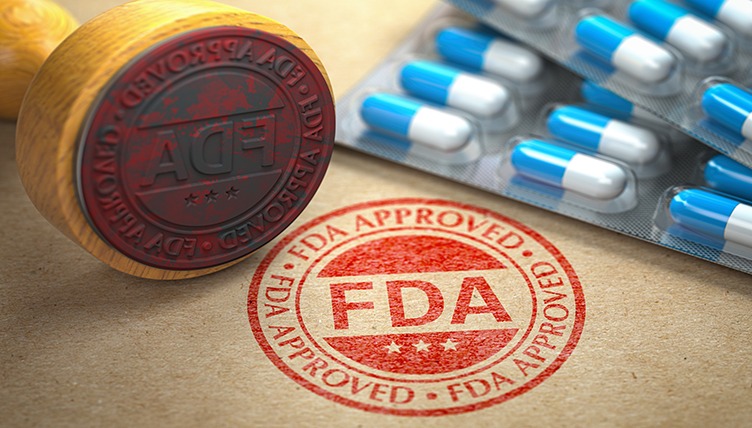New Drug Approvals in 2019: Which Drugs Made the Mark?
The FDA approved 48 new molecular entities in 2019, below the 59 NME approvals in 2018, a recent record high, but still the third highest number of approvals since 1996, when 53 NMEs were approved. Which companies and drugs scored FDA approval?
New drug approvals in 2019
In 2019, the US Food and Drug Administration’s (FDA) Center for Drug Evaluation and Research (CDER) approved 48 new molecular entities (NMEs). In 2018, the FDA approved 59 NMEs, which surpassed the previous record of 53 NME approvals in 1996 and the 46 NMEs approved in 2017. The 48 NME approvals in 2019 continues an upward trajectory for NME approvals (with the exception of 2016 when 22 NMEs were approved) over the last several years. FDA’s CDER approved 41 NMEs in 2014, 45 NMEs in 2015, 46 NMEs in 2017, and 59 NMEs in 2018. In the 10-year period through 2010 through 2018, CDER has averaged about 37 novel drug approvals per year.
For 2019, CDER identified 20 of the 48 novel drugs approved in 2019 (42%) as first-in-class, meaning representing a new mechanism of action or drug type. In 2019, 21 of CDER’s 48 novel drug approvals (44%) were approved to treat rare or “orphan” diseases, referring to diseases that affect 200,000 or fewer Americans, continuing a recent trend of approximately 40% or more of NME approvals being orphan drugs. In 2018, 34 of CDER’s 59 novel drugs (58%) were approved to treat rare or orphan diseases. In 2017, 18 of CDER’s 46 novel drugs (39%) were approved to treat rare or orphan disease. In 2016, 41% or 9 of the 22 NMEs approved by the FDA were orphan drugs. In 2015, 47%, or 21 of the 45 NMES approved by the FDA’s CDER were orphan drugs, and in 2014, 41%, or 17 of the 41 NMEs approved were orphan drugs.
Inside NME approvals in 2019
Among the NME approvals for the large drug companies, Novartis led with five NME approvals: Adakveo (crizanlizumab-tmca) for treating complications of sickle cell disease, Beovu (brolucizumab-dbll) for treating wet age-related macular degeneration; Egaten for (triclabendazole) for treating fascioliasis, a parasitic infestation caused by two species of flatworms or trematodes that affect the liver, sometimes referred to as “liver flukes”; Mayzent (siponimod) for treating relapsing forms of multiple sclerosis; and for Piqray (alpelisib) for treating breast cancer.
Several companies had two NME approvals. AbbVie had two approvals: Rinvoq (upadacitinib) for treating moderately to severe active rheumatoid arthritis and Skyrizi (risankizumab-rzaa) for treating moderate-to-severe plaque psoriasis in adults who are candidates for systemic therapy or phototherapy. Bristol-Myers Squibb, including products from its $74-billion acquisition of Celgene, had two NME approvals: Reblozyl (luspatercept-aamt) for treating anemia in adult patients with beta thalassemia who require red blood cell transfusions and for Inrebic (fedratinib) for treating intermediate-2 or high-risk primary or secondary myelofibrosis. Daiichi Sanky had two approvals: Enhertu (fam-trastuzumab deruxtecan-nxki) for treating metastatic breast cancer and Turalio (pexidartinib hydrochloride) for treating symptomatic tenosynovial giant cell tumors. Roche had two NME approvals: Polivy (polatuzumab vedotin-piiq) for treating relapsed or refractory diffuse large B-cell lymphoma and Rozlytrek (entrectinib) for treating metastatic non-small cell lung cancer.
Several large companies gained one NME approval: Allergan for Ubrelvy (ubrogepant) for treating migraines; Amgen for Evenity (romosozumab-aqqg) for treating osteoporosis; Astellas/Seattle Genetics for Padcev (enfortumab vedotin-ejfv for treating refractory bladder cancer; Bayer for Nubeqa (darolutamide) for treating certain types of prostate cancer; Eisai for Dayvigo (lemborexant) for treating insomnia; Eli Lilly and Company for Reyvow (lasmiditan succinate) for treating migraines; Johnson & Johnson for Balversa (erdafitinib) for treating advanced bladder cancer; Merck & Co. for Recarbrio (imipenem, cilastatin and relebactam) for treating complicated urinary tract and complicated intra-abdominal infections; Mylan for Pretomanid (pretomanid) for treating teatment-resistant forms of tuberculosis; Pfizer for Vyndaqel (tafamidis meglumine) for heart disease (cardiomyopathy) caused by transthyretin mediated amyloidosis in adults; Sanofi for Cablivi (caplacizumab-yhdp) for treating acquired thrombotic thrombocytopenic purpura; and Shionogi for Fetroja (cefiderocol sulfate tosylate) for treating urinary tract infections.






